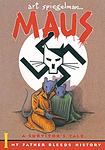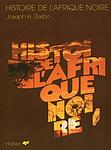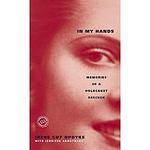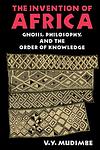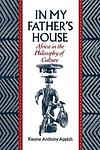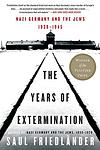The Greatest "Nonfiction, Holocaust" Books of All Time
Click to learn how this list is calculated.
This list represents a comprehensive and trusted collection of the greatest books. Developed through a specialized algorithm, it brings together 300 'best of' book lists to form a definitive guide to the world's most acclaimed books. For those interested in how these books are chosen, additional details can be found on the rankings page.
Genres
Countries
Date Range
Reading Statistics
Click the button below to see how many of these books you've read!
Download
If you're interested in downloading this list as a CSV file for use in a spreadsheet application, you can easily do so by clicking the button below. Please note that to ensure a manageable file size and faster download, the CSV will include details for only the first 500 books.
Download-
1. If This Is a Man by Primo Levi
This book is a deeply moving and insightful memoir of a survivor of Auschwitz, a Nazi concentration camp during World War II. The author, an Italian Jew, provides a detailed account of his life in the camp, the brutal conditions, the dehumanization, and the struggle for survival. The narrative is a profound exploration of the human spirit, resilience, and the will to live, despite unimaginable horror and suffering. It also raises profound questions about humanity, morality, and the capacity for evil.
-
2. Maus by Art Spiegelman
This graphic novel tells the story of a Holocaust survivor, as narrated by his son. The unique use of animals to represent different nationalities and ethnic groups adds a distinctive layer to the narrative. The protagonist's father recounts his experiences as a Polish Jew during World War II, offering a poignant depiction of the horrors of the Holocaust. The narrative also explores the complex father-son relationship, revealing the impact of such traumatic historical events on subsequent generations.
-
3. Schindler's List by Thomas Keneally
The book tells the true story of a German businessman who saves more than a thousand Polish Jews during the Holocaust by employing them in his factories. The protagonist's transformation from a greedy high living war profiteer to a savior of lives forms the crux of the narrative. It offers a chilling yet inspiring account of the horrors of the Holocaust, human resilience, and the power of one individual to make a significant difference.
-
4. Night by Elie Wiesel
This book is a memoir of the author's experiences during the Holocaust, specifically in the Auschwitz and Buchenwald concentration camps. The narrative focuses on the relationship between a father and son under the most extreme circumstances, the loss of faith in God, humanity, and in each other, and the horrifying reality of the systematic genocide of six million Jews during World War II. The book is a poignant and stark examination of the depths of human evil and the enduring power of hope and survival.
-
5. Eichmann in Jerusalem: A Report on the Banality of Evil by Hannah Arendt
This book is a thought-provoking exploration of the trial of Adolf Eichmann, a major organizer of the Holocaust. The author argues that Eichmann was not a fanatical ideologue, but rather an ordinary individual who simply followed orders and bureaucratic procedures, highlighting the terrifying potential for evil in any system that values obedience over personal responsibility. The concept of the "banality of evil" is introduced, suggesting that horrific acts can be committed by ordinary people under certain conditions.
-
6. The Drowned and the Saved by Primo Levi
This book is a deeply moving exploration of the Holocaust, written by a survivor. It delves into the horrifying experiences at Auschwitz, examining the psychological impact on the prisoners, the brutal behavior of the guards, and the complex moral dilemmas faced by both. The author also discusses the concept of memory and its unreliability, especially in the context of such traumatic events, and analyzes the ways in which the Holocaust has been represented and remembered in society. The book serves as a profound meditation on the human condition under extreme circumstances.
-
7. All But My Life by Gerda Weissmann Klein
"All But My Life" is a poignant memoir of a young woman's six-year ordeal as a victim of Nazi cruelty. The narrative follows her life from a peaceful, upper-middle-class childhood in Bielitz, Poland, through her horrifying experiences and loss during the Holocaust, to her miraculous survival and marriage to an American soldier. It is a story of courage, resilience, and the enduring power of hope.
-
8. Histoire De L'afrique Noire by Joseph Ki-Zerbo
"Histoire De L'afrique Noire" is a comprehensive exploration of the history of Black Africa, written by Joseph Ki-Zerbo. The book delves into the origins of African civilizations, the impact of colonization, and the struggle for independence. Ki-Zerbo analyzes various aspects of African history, including political, economic, and social developments, highlighting the contributions of African leaders and the challenges faced by the continent. This informative and engaging work provides a valuable resource for anyone seeking a deeper understanding of the rich and complex history of Black Africa.
-
9. I Have Lived a Thousand Years by Livia Bitton-Jackson
This memoir tells the harrowing story of a 13-year-old Jewish girl's survival during the Holocaust. The narrative follows her life from her quiet existence in Hungary through the horrors of Auschwitz and other concentration camps, and finally to her liberation and the struggle to rebuild her life in the aftermath of such trauma. The memoir is a powerful testament to human resilience and the will to survive against all odds.
-
10. In My Hands by Irene Opdyke
This memoir recounts the story of a Polish woman who, during World War II, worked as a housekeeper for a Nazi major while secretly aiding the Jewish resistance. She risked her life by hiding Jews in the basement of the Nazi officer's house, stealing food and supplies for them, and eventually leading them to safety. Despite the constant threat of discovery and the moral complexities she faced, she persevered in her efforts to save lives, demonstrating remarkable courage and resilience.
-
11. Survival In Auschwitz by Primo Levi
This book is a harrowing, first-person account of a man's year-long ordeal in Auschwitz, the infamous Nazi concentration camp. The narrative details the brutal conditions, the dehumanizing treatment, and the constant struggle for survival. Despite the horrors he faces, the author emphasizes the importance of maintaining one's humanity and dignity, even in the face of unimaginable cruelty. The book serves as a poignant reminder of the depths of human depravity, as well as the resilience of the human spirit.
-
12. The Invention Of Africa by V.Y. Mudimbe
"The Invention of Africa" explores the construction and representation of Africa as a continent and its people through the lens of Western knowledge and power. V.Y. Mudimbe critically examines the historical, cultural, and political processes that have shaped Africa's image, challenging the dominant narratives and highlighting the complexities and diversity of African identities. Through an interdisciplinary approach, Mudimbe deconstructs the Eurocentric gaze and invites readers to rethink their understanding of Africa and its place in the global context.
-
13. In My Father's House by Anthony Appiah
"In My Father's House" by Anthony Appiah is a thought-provoking exploration of the complexities of African identity and the concept of cultural authenticity in a globalized world. Through personal anecdotes, historical analysis, and philosophical reflections, the author challenges essentialist notions of African culture, arguing for a more fluid understanding that embraces the diverse influences and hybridity of modern African societies. Appiah's nuanced perspective sheds light on the intricate interplay between tradition and modernity, and invites readers to question and redefine their own cultural identities.
-
14. The Years of Extermination by Saul Friedlander
"The Years of Extermination" is a comprehensive historical analysis of the Holocaust, examining the genocide from 1939 to 1945. Drawing on a variety of sources, including diaries, letters, and firsthand accounts, it provides a detailed and harrowing account of the systematic extermination of the Jewish people during World War II. The book also explores the responses of various groups, including the Jewish communities in Europe, the international community, and the perpetrators themselves.
Reading Statistics
Click the button below to see how many of these books you've read!
Download
If you're interested in downloading this list as a CSV file for use in a spreadsheet application, you can easily do so by clicking the button below. Please note that to ensure a manageable file size and faster download, the CSV will include details for only the first 500 books.
Download
